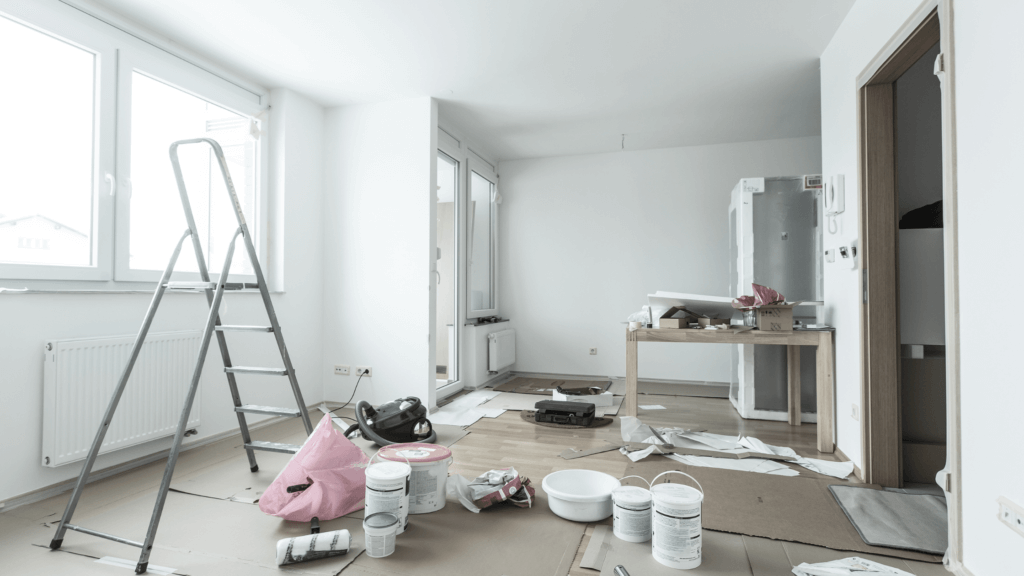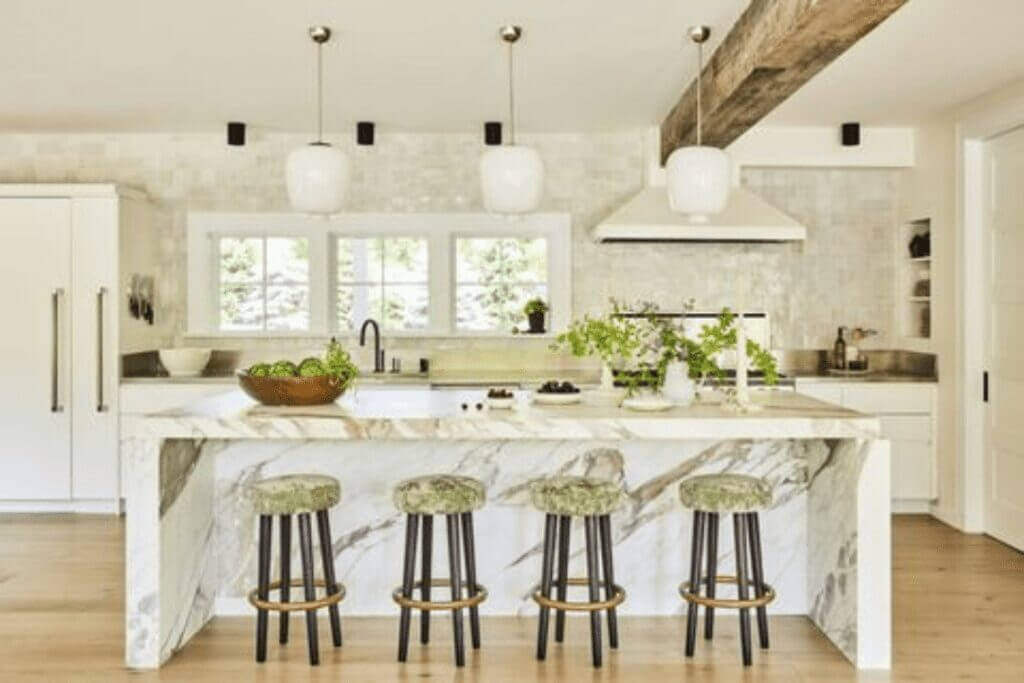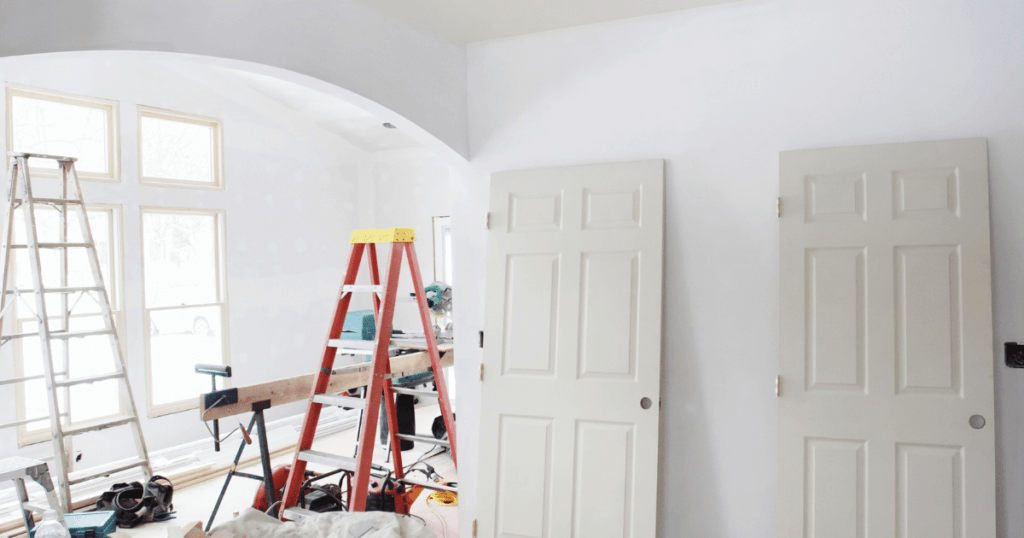Some upgrades can have the opposite effect and drive down property prices. Some people could consider paradise to be hell on earth. Although the majority of
are indeed beneficial, there are a handful that should be avoided. Some improvements might even lower the value of your property. That’s why it’s important to give some serious thought before shelling out cash for home improvements that won’t increase the property’s popularity and resale value. You should invest in initiatives that have public appeal rather than your own personal tastes if you want to sell it soon and make the most money possible. If you want to make sure that every dollar you spend on home upgrades is a profitable one, you should avoid making the following purchases before advertising your property.
Renovating in a way that lowers a home’s value
Numerous Similar Listings
If you’ve ever tried to offload a property at a reasonable price amid the real estate mayhem that happens during one of the lows in the housing market, you know how challenging it can be. Your home’s value will suffer if there are many others like it on the market, even if demand is high.
What’s worse is if your neighborhood has a high concentration of unpaid mortgages and unsold homes. Your home’s value will suffer if you choose to reside in an area that has had a high rate of foreclosures or short sales. Within a radius of 250 feet (approximately 75 meters), foreclosure homes typically cost 1% of the property’s value.
Neighborhood Conditions
Buyer interest might be dampened by a variety of factors unrelated to foreclosures in the area. A home’s value might decrease if it is located in a noisy area, such as near an airport or train lines. Prospective buyers may also be put off by the presence of light pollution from a neighboring roadway or sporting facility. The same is true of power plants and landfills. Both have been shown to have a detrimental effect on property prices.
Perhaps a mobile phone tower has been constructed in the area since you initially moved in. Or maybe things got really bad and a seedy strip joint sprang up on the corner. A bad reputation for crime in your neighborhood is also a problem. If your area has declined in recent years, it may no longer be worth as much as it once was.
It’s possible to seek talks with even the worst neighbors. There won’t be much you can do in certain situations, but you could have some luck in others. Make a written record of your objections and submit them politely. Depending on the rules and regulations in your community, you may also be able to report this issue to the police or your elected representatives.
School District Details
Your neighborhood’s schools might have a significant impact on the value of your property. Homebuyers frequently prioritize areas with good schools. Parents will pay special attention to the quality of the local schools when deciding where to set their sights. Other purchasers, cognizant of the influence schools may have on house value, could factor it in as well.
Not much can be done to alter a school’s image, but research shows that institutions where parents are actively involved tend to excel. It’s a tricky landscape since areas with outstanding schools and caring parents tend to be more affluent overall.
Annoying Neighbors
In order to get to your property, a potential buyer must first pass through your neighbors, who may reduce its market value in a number of ways. Disputes between neighbors can arise over a variety of issues, including whether individual grass blades make up the crucial property border. These disagreements might sometimes be carried over to the next owners. Many potential buyers could pass on your home altogether or offer a lower price if they learn about your issue with your neighbors.
There’s also the possibility that you or your neighbor suffers from colorblindness. In case you live in a neighborhood with a badly coloured house, it’s not only giving you something to complain about as you jog by every morning. That ugliness is discouraging potential purchasers, who represent lost revenue.
Unkempt landscaping or a noisy pet next door might potentially be deal breakers for potential buyers. Problems might arise when you have to live near a convicted sexual offender or a group of people who want to party at all hours. Your home’s value might drop by as much as 9 percent and its duration on the market could increase by as much as 10 percent if it’s located within a tenth of a mile of a busy highway. When problems like this arise, though, there is nothing that can be done save making amends (or begging) with your neighbors. However, you do have some control over your own property.
Curb Appeal — The Yard
What is one of the first things you notice when you pull up to someone’s house? Do you mean the yard? (Or lack thereof) If taking care of the yard isn’t a high priority for you, it might make selling your home more challenging. After all, almost half of all houses sold on the market may be attributed to having great curb appeal. Low or no offers might result if your house doesn’t have any.
If you have a lot of artificial installations in your yard, like that cute little garden gnome, it might lower the value of your property. Even features like pools, ponds, and waterfalls might lower your home’s value, especially if potential purchasers have small children or are looking forward to landscaping a new space.
Plants, like fashion and automobiles, are subject to cycles of popularity. It may be worthwhile to research the current trends in landscaping since what was fashionable a few years ago may now put off potential buyers. People may want to stay away from plants that require a lot of care or that grow quickly, as these factors might lead to complaints from neighbors or structural damage to the property.
Last but not least, while many homes have a deceased cat, dog, hamster, or rabbit decomposing in the backyard, purchasers are often not pleased by the idea of sheltering your dead pet. It is recommended that all gravestones be removed.
The Paint for Curb Appeal
Obviously, a home’s value may be negatively affected by a lack of maintenance, and a lack of paint can be a major eyesore. Old, faded, cracked, or peeling paint can have the same negative effect on a home’s value as a badly maintained yard.
A buyer may still be turned off by the color (or color scheme) of your choice even if you spend a lot of time and money repainting your property. If you want to paint your house and attract as many potential buyers as possible, you should use safe, tried-and-true hues. White, gray, blue, and different hues of beige or cream are all safe picks because they are neutral colors that go well with other decor. The color of a home’s front door is often the first thing visitors see, so it’s important to choose wisely.
You should inquire around for recommendations for both a house painter and a color consultant if you’re concerned about the quality of your home’s current paintwork. It’s possible to hire a single individual to take care of both of these tasks.
Interior Aesthetics
Once inside, potential buyers will immediately make notice of a number of details. Do you have a lot of stuff lying around the house? Do you have family photos all throughout the house? What’s the lighting like inside the house? Even though these are simple fixes, they may prevent you from getting your asking price when selling your house.
A new coat of paint on the inside is also recommended, but try not to go too crazy with the color scheme. Strange paint schemes, bizarre wallpaper, and worn flooring are not likely to appeal to purchasers. Lack of closet or storage space in your house may also be a contentious issue. You want it to seem homey and comfortable, but not sloppy.
Make sure everything is put away and cleaned up before you host a showing. You want potential buyers to picture themselves in a brand-new house, not an old dump.
There are things to avoid if you want to improve the paint job on the inside of your home as well. People regularly complain about wall and ceiling texturing, and many of them know it may be a chore to remove. The prospect of getting hired might encourage them to offer less money.
Deferred Maintenance
A severe maintenance issue, such as a leaking roof, broken plumbing, non-functioning heating, ventilation, and air conditioning (HVAC), or mold, will almost surely be a source of disagreement. If you want to sell your property for what it’s worth, you need to take care of any necessary repairs before putting it on the market. No, they won’t do that.
If you’re not sure you can do the repairs on your own, hire a specialist. Many potential buyers will be turned off by shoddy DIY work. The price a buyer is willing to pay may be impacted by a number of factors, including but not limited to soiled ceilings and leaking faucets. Now is the time to finish off any remaining unpleasant tasks.
We will now go on to a discussion of potential initiatives that, if executed well, might greatly increase your profits.
Checking with home renovation contractors and real estate agents for their input before beginning a renovation or repair job is highly recommended. Some of your ideas may not increase the value of your property as much as you expected them to, or the project’s scale may be too much for you to undertake. In addition, you may learn what is currently successful in the market.
Quaint Cooking Area
The kitchen is one of the first places a potential buyer will check over once inside a house. As a result, many homeowners decide it’s time to update their kitchens, with varying degrees of success. One of the most common causes of mediocre results in home improvement projects is the owner’s attempt to make it uniquely their own. What would a vegetarian or someone who doesn’t like to cook think of putting in a massive stovetop grill, which would be precisely what a fellow passionate carnivore is seeking for? You may forget about getting any money from them for the worth of your improvement.
The kitchen sink, countertops, and cabinets are the focal points of many successful kitchen remodels. People are sure to take note of a brand-new sink and stylish cabinetry. However, the value of your kitchen can be severely diminished if features like the worktops and backsplash are old and soiled. If you’ve created any major markings in the house, you should start removing them as soon as possible, because the next owners don’t want to be reminded of the previous owners.
A kitchen redesign is a big project, but it’s one that most people can handle on their own if they break it down into manageable chunks and take their time. On the other hand, if you’re not very good with tools, it’s probably best to hire an expert. Paying for shoddy repairs and renovations will just drain your bank account, while investing in a high-quality kitchen upgrade may increase your home’s worth significantly.
Where can you expect the prospective buyers to go after they’ve finished checking out the kitchen? The bathroom is another important space that may increase or decrease a home’s value, so let’s hope they’re impressed.
An Abused Bathroom
Pay close attention to the restroom as well, but proceed with caution there as well. It’s important to build something you’re proud of, especially if you have no plans to move in the near future, but it’s also important to make something that many other people will be proud of, too.
The home value may be increased via bathroom renovations and extensions, but it’s simple to make mistakes like using tacky fixtures or wallpaper that doesn’t match the rest of the house. It will benefit you better if you stick to standard, elegant design elements. You should check out the current bathroom styles to determine whether yours is still in style or needs an updated look if you intend on relocating in the near future but not for a while. If you choose to go with wallpaper, you should know that it will likely reduce the value of your property unless you plan to remove it and repaint it before putting it on the market.
New flooring can be a good idea if there has been damage, but carpet and vinyl should be avoided if possible. Even though linoleum is popular again, you should probably steer clear of it because the adhesive that keeps it down still gives many people the willies. Hardwood floors or a variety of tiles are both terrific choices. The bathroom should be your last point of consideration. Those who use them tend to be fussy about their commodes. They don’t want any traces of the previous cooks in the dining room or kitchen either.
Following these tips might result in a higher selling price for your home when the time comes to relocate. And if you do decide to lay down roots, your house will be an enduring architectural masterpiece.
Conclusion
The challenges of home improvement are real. While home improvements can increase a property’s worth, homeowners must take care to avoid making mistakes that would detract from that value. Homeowners may improve their chances of getting a good return on their remodeling investment by avoiding the common pitfalls we’ve described above. As a real estate agent, it is your responsibility to inform and counsel customers on the proper and improper ways to improve the value of their homes.



